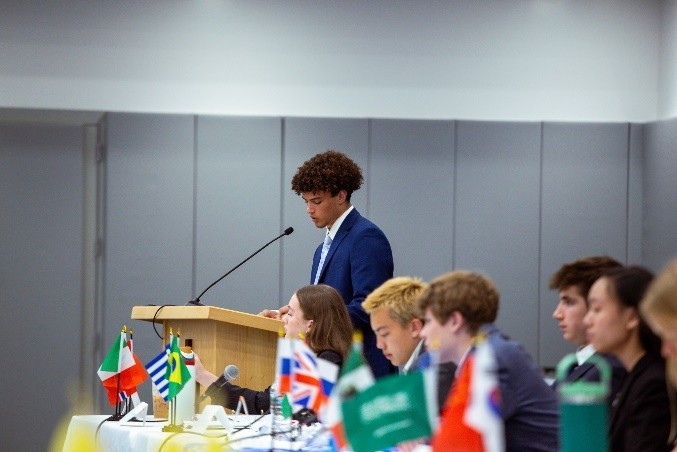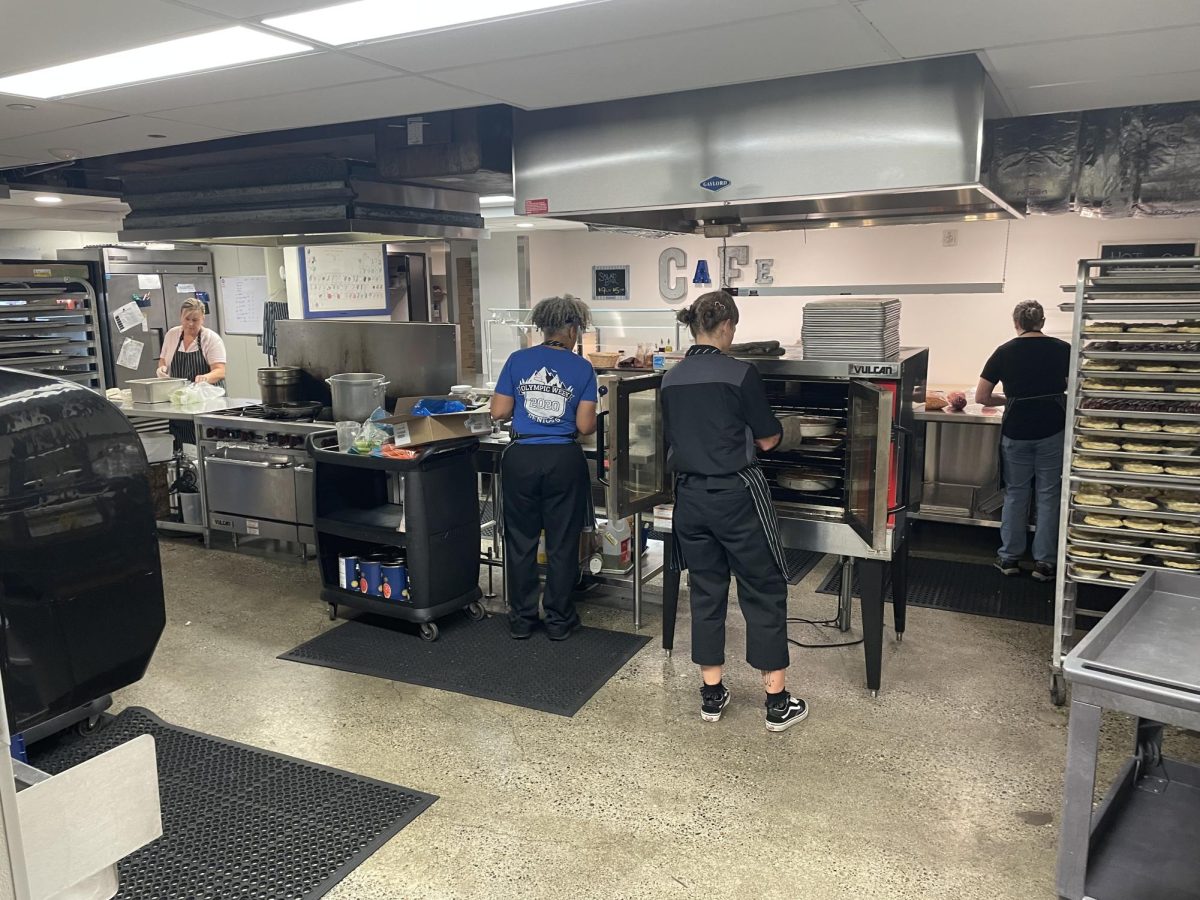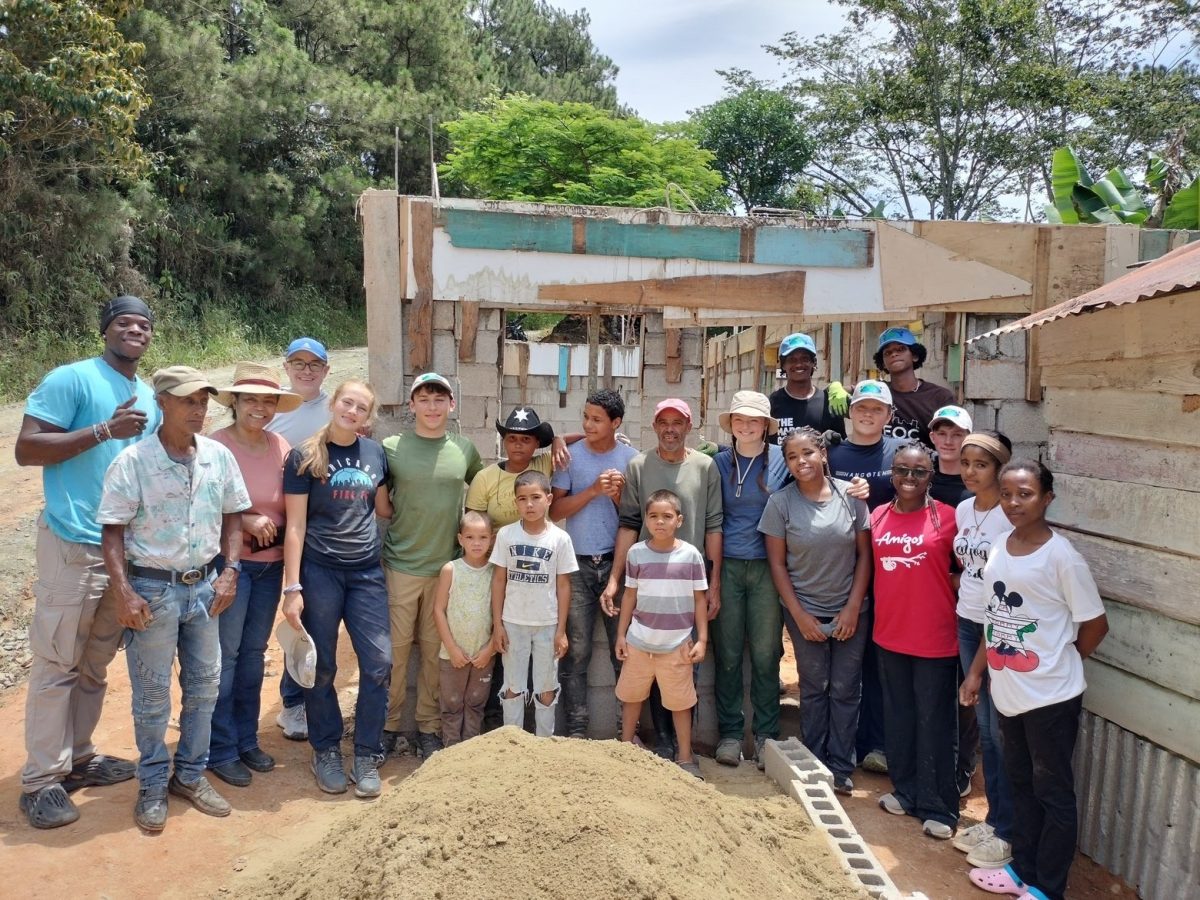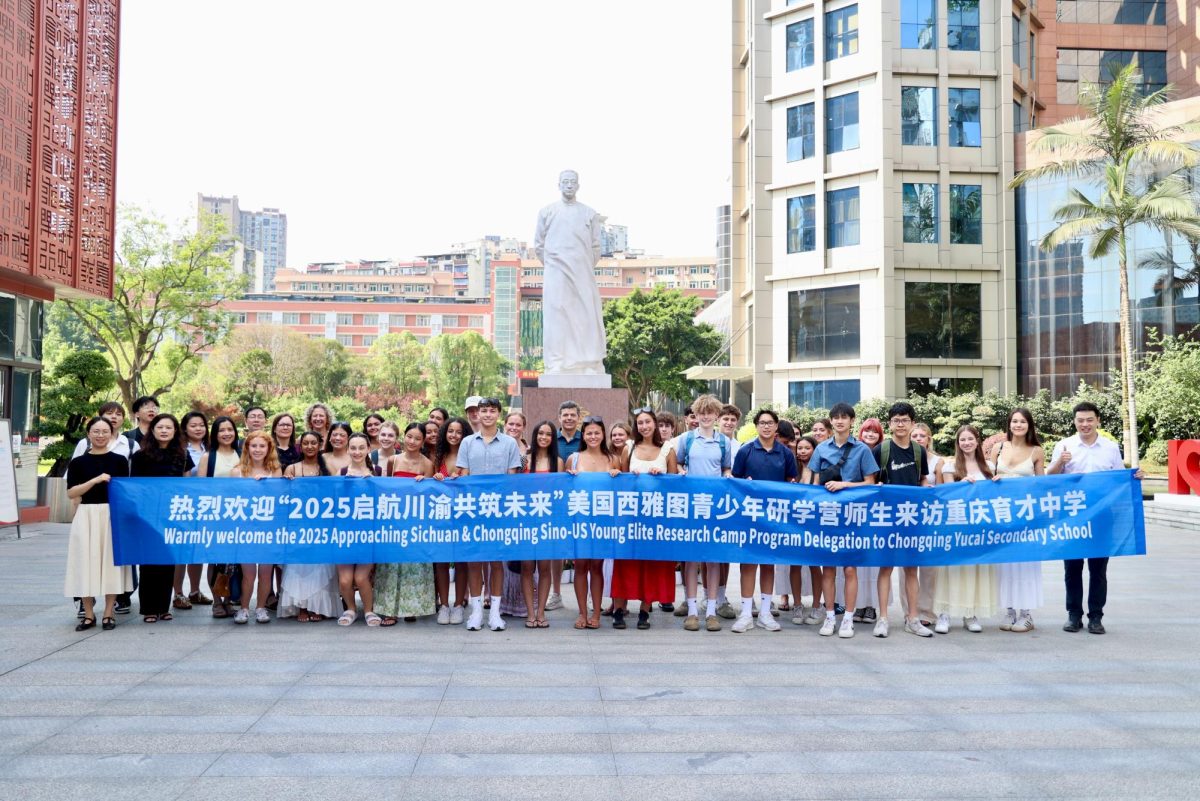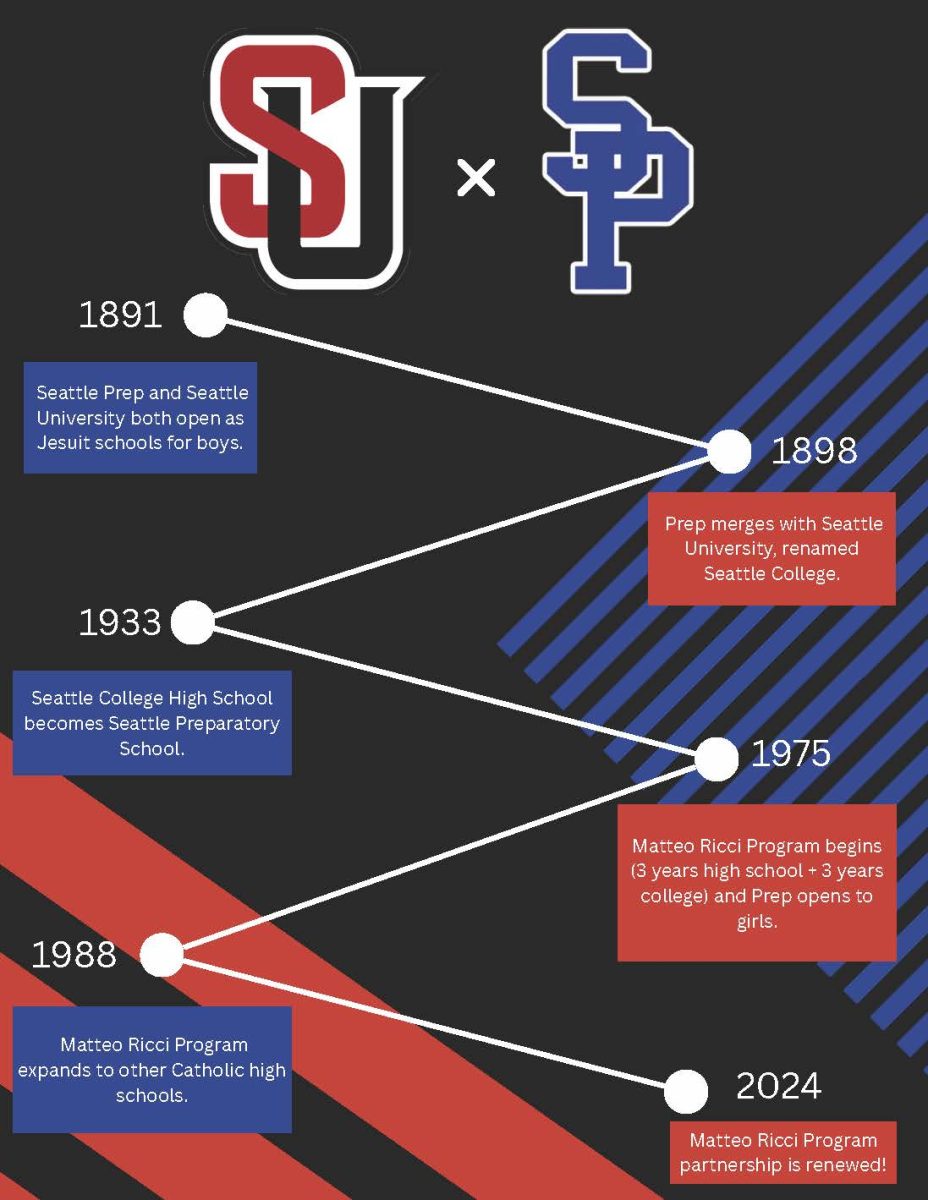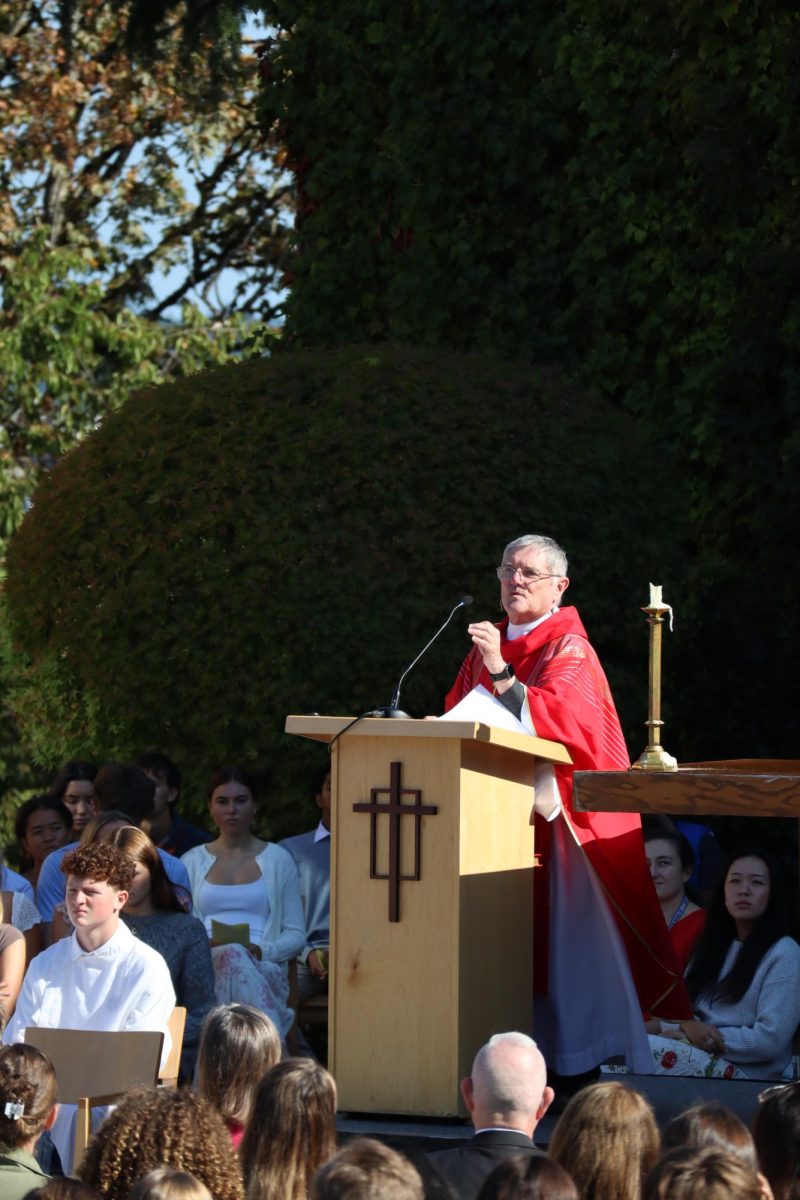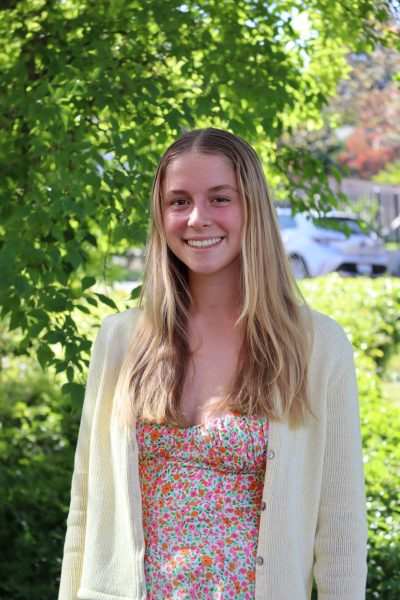UN has a profound ability to allow students to feel the power of moments.
Every Seattle Prep student, in their sophomore year of high school, gets paired up with a partner, chooses a country to represent, does intensive research, and participates in a two-day Model UN simulation at the end of the year.
For students, the country they choose to represent as delegates will be the one they delve deeply into, with countless notecards and research, ensuring they are thoroughly informed about their country’s positions and policies.
When discussing the process teachers go through when deciding which countries students will be able to pick from, sophomore Collegio teachers Ms. Healy and Ms. Slack explain, “Countries which play a huge role in the global community (Russia, China, US, Isreal, Iran) are always countries in UN, but each year we may add or substitute in countries based on locations we ourselves have visited – as this helps us to aid students more on those specific countries”. Geographic diversity in every continent and making sure that there is no overrepresentation in certain regions are also things teachers consider when deciding which UN countries will be represented each year.
Both Ms. Healy and Ms. Slack have years of experience teaching and proctoring the UN simulation, with Ms. Slack herself having participated in UN when she attended Seattle Prep.
When asked what they believe is the most challenging part of UN, Ms. Healy stated, “Coming up with a resolution which each country on the committee can agree upon that is realistic and creative can pose a great challenge”.
“Additionally, many students struggle with producing and crafting evidence-based analysis in their committee issue papers, rather than simply regurgitating research,” Ms. Slack explained.
Though UN does present its fair share of challenges, that does not take away from the opportunities for growth, fulfillment and gratification.
Some of the most rewarding aspects students encounter during the UN project is the UN simulation itself, as it is a time students can display all the work, research, and time they have spent and put their knowledge on display to parents, friends, and family to witness.
“For me it felt super rewarding to work on a project for so long while getting to learn along the way and then getting to showcase all the work you’ve put into the project,” Pearl Steele ’26 explained.
Both Ms. Slack and Ms. Healy participated in a Jesuit conference in which they discussed the power of moments, which UN encapsulates. Ms. Healy described this “power of moments” being like in a sports match. If a team never competed in a game and only ever practiced, they would never experience the reward for all their hard work. In the academic world there are rarely any of these “game” moments where students are able to display their work and knowledge. This is a unique part of UN which yields the performance aspect in an academic setting – allowing students to feel proud and successful for their hard work, and having that as a reward, taking place of a letter or number grade.
The decision to place the UN project during sophomore year, within the four years of high school, is because this period represents a time “when huge amounts of growth begins to take place, and students begin to think more abstractly, which UN reinforces, preparing students for more challenging history and literature that happens in their junior and senior year” Ms. Healy explained.
Steele ’26 described how UN taught her that, “It is never a bad idea to start your work early and knock it out little by little. Leaving work for the last minute is never a good idea. Although annoying, getting ahead of things is always better” and this is a lesson that she has carried with her into her junior year.
When considering this project as a whole, teachers Ms. Slack and Ms. Healy hope that students can gain the following: Confidence in their abilities to articulate research and in working through challenges with classmates, as well as building relationships and public speaking skills.
Lastly, Ms. Healy hopes that UN allows students “to take this opportunity to explore current global issues and be inspired to embrace their role as a global citizen, contributing to efforts that aim to make the world a better place.”


